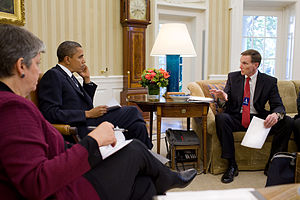|
Listen to this Article
|
You know what they say: All good things take time. After 13 years of groups lobbying on behalf of vulnerable workers who might blow the whistle on their federal employers, President Obama signed a bill into law meant to alleviate that longstanding concern. In addition to creating newer, wider protections for federal employees, the Whistleblower Protection Enhancement Act (WPEA) also closed loopholes – particularly those exposed by the courts – that left existing law seriously lacking.
One such loophole closed by the new whistleblower law was one that only extended legal protection to the first employee to report misconduct, leaving subsequent whistleblowers unprotected against retaliation by their employers.

“Strong whistleblower protections mean safer food,” explained FIC Director Amanda Hitt, celebrating the major strides made by the bill. “We’re moving in the right direction. Government workers who serve as the public’s watchdog are now themselves safer from retaliation.”
One particularly glaring area not covered by WPEA, though, is the extension of whistleblower protections to national security and intelligence employees, whose attempts to blow the whistle on supervisors would be conveniently foiled by invoking the “state secrets” privilege. However, despite such an oversight by Congress, President Obama took necessary measures in October to ensure that the same protections outlined in the new bill were extended to national security and intelligence employees.
More specifically, the new Presidential Policy Directive “prohibits retaliation” by federal employers of workers “who are eligible for access to classified information [so that they] can effectively report waste, fraud, and abuse while protecting classified national security information.”
The WPEA’s passage marks a major policy shift when it comes to federal employer accountability. According to the New York Times, in the 18 years preceding the bill’s passage, the Court of Appeals for the Federal Circuit – the only court to hear federal whistleblower cases – had heard 229 cases involving allegations of whistleblower retaliation. Out of those cases, only three were decided in favor of the plaintiff, effectively rendering a hopeless situation for federal employees looking to prevent the aforementioned “waste, fraud, and abuse.”


